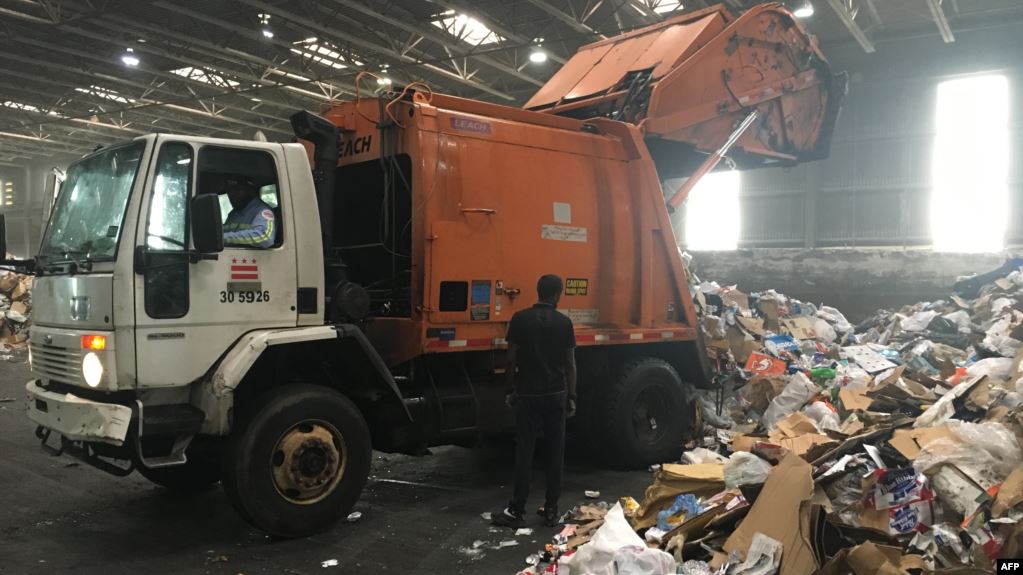پادکست VOA: اصطلاحات انگلیسی – اصراف نکن
سلام با سیزدهمین قسمت از مجموعه “Words and Their Stories” (کلمات و داستان آن ها) از سری پادکستهای VOA در خدمت شما هستیم. این مجموعه پادکست به توضیح اصطلاحات رایج زبان انگلیسی، داستان ایجاد شدنشون و نحوه استفاده از آن ها در مکالمه می پردازه. در این قسمت از پادکست VOA: اصطلاحات انگلیسی – اصراف نکن قراره درباره کاربرد و معنی کلمه waste و چندتا اصطلاح رایج با این کلمه آشنا بشی. در کنارش چندین کلمه ی جالب و کاربردی دیگه هم یاد میگیری که لیست این کلمه ها به همراه معنی اون ها در پایان مطلب قرار گرفته.
کلمه waste در انگلیسی معنی و کاربرد زیادی داره. مثلا “a waste of space” رو می تونی وقتی با کسی دعوات شده به کار ببری، یا بگی “you’re wasting my time” یعنی “داری وقتم رو تلف میکنی”. اصطلاح “haste makes waste” هم یعنی وقتی عجله میکنی حتما اشتباهاتی هم پیش میاد.
VOA – Words and Their Stories – 13: Waste Not, Want Not Is Good Advice

متن انگلیسی پادکست VOA: اصطلاحات انگلیسی – اصراف نکن :
And now, Words and Their Stories, from VOA Learning English.
Waste. It is something we are often told not to do.At home, parents tell us not to waste food.In the classroom, teachers tell us not to waste time.On a sports team, coaches tell us not to waste energy.People who do not want to hear our ideas, tell us not to “waste our breath.”
Whether it is food, time, energy or breath — waste is a loss of something valuable. Waste happens because we use too much of a resource or because we do not use it well.
We often use “waste” in arguments. If we are unhappy with someone, we can say: “Don’t waste my time.” If we are really unhappy with someone, we can say to them, “You are a waste of space!”
And if you are not happy with the result of something you have done, you can say, “Well, that was a complete waste of time.”
There are other ways we use the word “waste.”
If someone is very sick or is losing a lot of weight, we can say they are “wasting away.” And if someone has too much alcohol and cannot control their words and actions, we can say they are “wasted.”
So, those are some ways we use the word “waste.” We also find it in some useful expressions.
Here’s the first one: “Haste makes waste.”
The online dictionary Merriam-Webster says this expression was first recorded in 1678. The full saying was: “Haste makes waste, and waste makes want, and want makes strife between the good-man and his wife.”
“Haste” means doing something very quickly. “Haste makes waste” means if you hurry and rush while doing something, you could make mistakes. And it takes more time and effort to fix mistakes. So, if someone says, “Hurry up! It’s taking you forever to cut that wood for the house project.” You can simply say: “Haste makes waste. I want to do it right the first time!”
The other common expression is: “Waste not, want not.”
This means that if a person never wastes things, he or she will have what is needed. We often say this as a response to being very frugal. Frugal people are careful about spending money or using things. They are not wasteful.
Here is one way to use it. Let’s say I am carefully putting paper into a pile. Some of the papers have writing on them, but most do not. And I think I can still use it for something.
If someone sees me and says, “Why don’t you just throw that paper away? We have lots of paper.” I can say to them, “Waste not, want not.” It is a simple way to say, “I don’t want to waste this paper. If I need it for something later, I’ll have it.”
Now let’s hope learning about “waste” in this Words and Their Stories was not a “complete waste of your time.”
Until next time … I’m Anna Matteo!
And there’s so much time to make up everywhere you turn Time we have wasted on the way So much water moving underneath the bridge Let the water come and carry us away
لیست واژگان این پادکست
coach (مربی) – n. one who instructs players in the fundamentals of a sport and directs team strategy
strife (درگیری) – n. formal : very angry or violent disagreement between two or more people or groups
rush (هجوم بردن) – v. to move or do something very quickly or in a way that shows you are in a hurry
frugal (صرفه جو) – adj. careful about spending money or using things when you do not need to : using money or supplies in a very careful way
pile (توده) – n. a large number of things that are put one on top of another
امیدوارم از پادکست VOA: اصطلاحات انگلیسی – اصراف نکن لذت برده باشید. برای دسترسی به قسمت های دیگر این پادکست می توانید از صفحه ی پادکست VOA – اصطلاحات انگلیسی آکادمی مجازی آموزش زبان ۲۴talk دیدن کنید.
همچنین برای گوش دادن به پادکست های سطح بندی شده British Council می توانید به صفحه ی پادکست British Council آکادمی مجازی آموزش زبان ۲۴talk یا برای گوش دادن به پادکست های BBC به صفحه ی پادکست ۶ دقیقه انگلیسی (BBC) آکادمی مجازی آموزش زبان ۲۴talk مراجعه کنید.
گوش دادن به پادکست روش خوبی برای تقویت مهارت شنیداری و هم چنین یادگرفتن کلمات در بستر یک موضوع خاصه که این به تقویت مهارت مکالمه انگلیسی نیز کمک زیادی می کنه.
اگه دنبال این هستی که مهارت های مکالمه زبان انگلیسیت رو بیشتر از این تقویت کنی بهت پیشنهاد میکنم در دورهی مکالمه زبان انگلیسی آکادمی مجازی آموزش زبان انگلیسی ۲۴talk شرکت کنی که با یه برنامه منسجم و خلاقانه کمک میکنه در زمان کوتاه بتونی به راحتی و روانی انگلیسی صحبت کنی.








2 comments